Introduction
Blood pressure is the force exerted by circulating blood against the walls of the body’s arteries, the major blood vessels in the body. Hypertension is when blood pressure is too high. Blood pressure is written as two numbers. The first (systolic) number represents the pressure in blood vessels when the heart contracts or beats. The second (diastolic) number represents the pressure in the vessels when the heart rests between beats. Hypertension is diagnosed if, when it is measured on two different days, the systolic blood pressure readings on both days is ≥140 mmHg and/or the diastolic blood pressure readings on both days is ≥90 mmHg.

Understanding Hypertension
Hypertension, or high blood pressure, occurs when the force of blood against the walls of the arteries is consistently too high. This condition can strain the heart and blood vessels, potentially leading to serious health complications. Hypertension is often called a "silent killer" because it may not cause noticeable symptoms initially but can significantly impact overall health.
Causes of Hypertension
- Genetic Factors
Family history of hypertension can increase the risk, suggesting a hereditary component.
- Age
The risk of hypertension increases with age, particularly in individuals over 60.
- Diet
High intake of salt (sodium), low intake of potassium, and a diet high in unhealthy fats can contribute to hypertension.
- Physical Inactivity
Lack of regular physical activity can lead to weight gain and increased blood pressure.
- Obesity
Excess weight increases the strain on the heart and can lead to hypertension.
- Alcohol and Tobacco Use
Excessive alcohol consumption and smoking can increase blood pressure.
- Stress
Chronic stress can contribute to an increase in blood pressure.
- Hormonal Changes
Certain hormonal imbalances can affect blood pressure regulation.
- Kidney Disease
Conditions such as chronic kidney disease, glomerulonephritis, or polycystic kidney disease can lead to hypertension.
- Hyperthyroidism
Overactive thyroid can increase blood pressure.
- Adrenal Gland Tumours
Conditions like pheochromocytoma can cause hypertension.
- Cushing's Syndrome
Excess cortisol production can raise blood pressure.
- Obstructive Sleep Apnea
This condition can cause fluctuations in blood pressure during sleep.
- Medications
Certain medications, such as birth control pills, decongestants, and some prescription drugs, can increase blood pressure.
- Congenital Defects
Conditions like coarctation of the aorta, a narrowing of the aorta present at birth, can lead to hypertension.
- Certain Chronic Conditions
Diabetes, lupus, and scleroderma can contribute to secondary hypertension.
Symptoms of Hypertension
Hypertension is called a "silent killer". Most people with hypertension are unaware of the problem because it may have no warning signs or symptoms. For this reason, it is essential that blood pressure is measured regularly.
When symptoms do occur, they can include early morning headaches, nosebleeds, irregular heart rhythms, vision changes, and buzzing in the ears. Severe hypertension can cause fatigue, nausea, vomiting, confusion, anxiety, chest pain, and muscle tremors.
The only way to detect hypertension is to have a health professional measure blood pressure. Having blood pressure measured is quick and painless. Although individuals can measure their own blood pressure using automated devices, an evaluation by a health professional is important for assessment of risk and associated conditions.
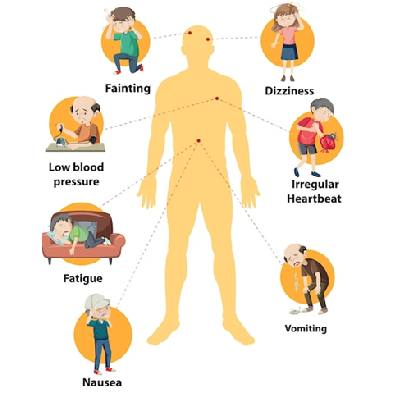
Diagnosis
- Reducing and managing stress.
- Regularly checking blood pressure.
- Treating high blood pressure.
- Managing other medical conditions.
Prevention
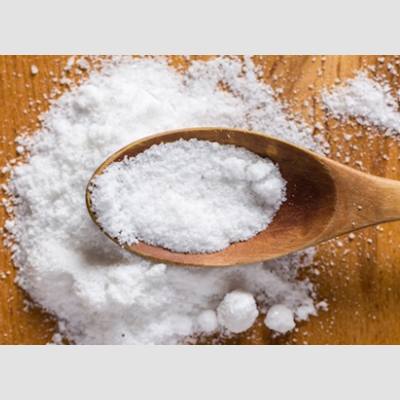
Reducing salt intake (to less than 5g daily).
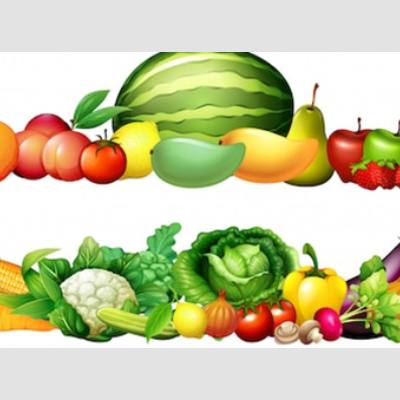
Eating more fruit and vegetables.

Being physically active on a regular basis.
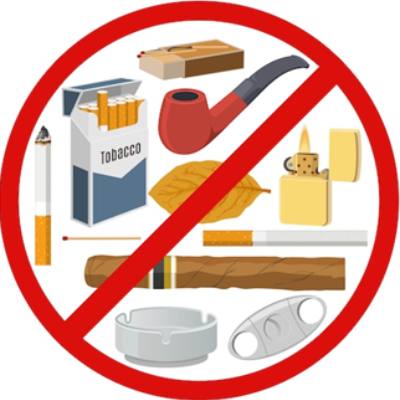
Avoiding use of tobacco.
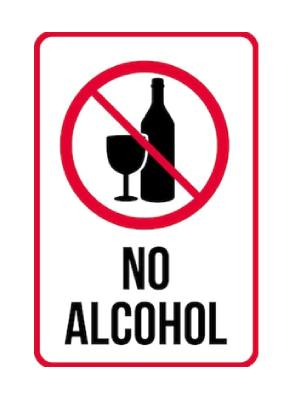
Reducing alcohol consumption.
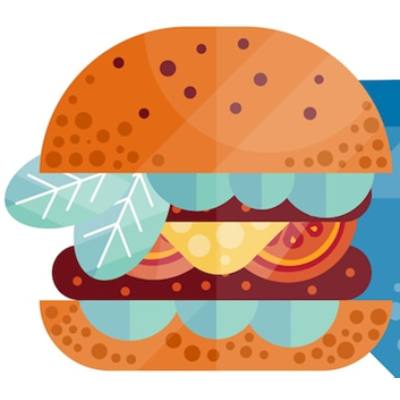
Limiting the intake of foods high in saturated fats.
Eliminating/reducing Trans fats in diet.
Homeopathy and Hypertension
Homoeopathy offers a holistic approach to managing hypertension by addressing the underlying causes, restoring natural balance, and promoting overall well-being. Homoeopathic remedies are selected based on an individual's specific symptoms, overall health, and constitutional factors. The goal of homoeopathy is to stimulate the body's self-healing mechanisms, regulate blood pressure, alleviate symptoms, and improve overall cardiovascular health.
Homoeopathic Remedies for Hypertension
- Aconitum Napellus
- For High Blood Pressure with Anxiety Aconitum Napellus is a medicine for high blood pressure along with anxiety and restlessness.
- The affected person often experiences a sudden fear of death.
- Other accompanying symptoms include palpitations, a pressure in the left side of the chest, sensation of weight under the breastbone and oppression of the chest.
- Pain in the heart extending to the left shoulder is also present.
- Glonoinum
- For High Blood Pressure with Headaches Glonoinum is a medicine for high blood pressure accompanied by headaches.
- The headache feels intense, congestive, throbbing, and bursting in nature.
- Other symptoms include strong palpitations, dyspnoea, heat in the face and cardiac pains radiating to other parts.
- Exertion leading to a rush of blood to the heart and fainting spells is another feature that indicates the need for this remedy.
- Glonoinum is also indicated for nephritis (kidney inflammation) with high blood pressure
- Kali Phos
- High Blood Pressure with Stress Kali Phos for high blood pressure is used when stress and worry are the main causes of high blood pressure.
- The symptoms include palpitations from slight motion, shortness of breath, and irregular pulse, along with both mental and physical fatigue.
- Nux Vomica
- For High Blood Pressure in Young People Nux Vomica for high blood pressure is useful medicine for young people who adopt sedentary modern lifestyle habits.
- These lifestyle habits include smoking, alcohol consumption, sedentary routine, a lack of exercise, etc.
- These factors predispose a person towards blood pressure.
- Lachesis
- For High Blood Pressure during Menopause Lachesis is perhaps one of the most leading homoeopathic remedies in controlling high levels of blood pressure.
- Lachesis may be given when there is marked restlessness physically as well as mentally.
- Another striking feature for prescribing Lachesis is that anything tight around the neck like closed collars, neck ties or tight necklaces are unbearable.
- Even tight clothes are unbearable.
- Feel better by loosening the belts or by wearing loose clothes.
- Lachesis may be given in high blood pressure in women who are in their menopausal age or post menopause.
- Natrum Mur
- For Those with Salty Tooth Natrum Mur is one of the most indicated remedies in cases of high blood pressure which occur due to a prolonged intake of high levels of salty things.
- Due to this, there may be swelling of the feet in the mornings.
- Natrum Mur may be given in cases where there is an unusual fatigue especially in the mornings.
- Though there is a restriction for excess salt intake, it is seen that there is an unusual craving for salty things like pickles, salad etc.
- There may be a sense of tightness around the chest region and palpitations on slightest exertion.
- Natrum Mur may be given in high blood pressure associated with hyperthyroidism and goitre.
- There is extreme sensitiveness to any external stimuli like sounds, smells or lights.
- Natrum Mur may also relieve headaches due to high blood pressure.
Benefits of Homoeopathic Treatment
- Individualised Care: Homoeopathy recognizes that each person's experience with hypertension is unique. A homoeopath will assess the symptoms, medical history, and individual characteristics to prescribe a personalised treatment plan tailored to the individual's needs.
- Gentle and Natural: Homoeopathic remedies are derived from natural substances and are known for their safety and minimal side effects. They work in harmony with the body, promoting self-healing and restoring natural balance.
- Holistic Approach: Homoeopathy considers not only the physical symptoms but also the emotional and mental aspects of an individual. It aims to restore balance at all levels, providing comprehensive care.
- Blood Pressure Regulation: By addressing the underlying causes of hypertension and promoting optimal cardiovascular health, homoeopathy strives to regulate blood pressure, reduce reliance on medications, and improve overall well-being.
Consulting a Homeopath
If you are seeking homoeopathic treatment for hypertension, it is important to consult with a qualified and experienced homoeopath. At Sanjivani Homeopathy Clinic, our team of skilled homoeopaths will conduct a thorough evaluation, considering your symptoms, medical history, and individual characteristics to develop a personalised treatment plan.
Sanjivani Homeopathy Clinic USP
- No homoeopathy Dietary Restrictions:
Allows patients to enjoy foods like onion, garlic, and coffee, ensuring a stress-free treatment journey.
- 24/7 Online Consultations:
Enables convenient access to doctors with detailed counseling, history management, and follow-ups.
- Highly Skilled Team:
Experienced BHMS and MD doctors, supported by multilingual and professional staff.
- Patient-Centric Care:
Simplifies treatment with modern, adaptable solutions and clear communication.
Click Here for Detailed "Sanjivani USP"
FAQ's
- What is homoeopathy ?
Homoeopathy is a holistic science which belives in the law of Similia Similibus Curenter i.e Like Cures Like .It was discovered by Dr Samuel Christian Hahnemannn in 1796.
- Is there any side effects of homoeopathy?
As homoeopathic medicines are made from natural substances this medicines have no side effects and are completely safe to consume
- Is there any diet restriction to take homoeopathic medicines?
There are no diet restrictions for homoeopathic medicines. One should only avoid eating or drinking any liquid other than water at least 30 minutes before and after taking homoeopathic medicines.
Click Here for "Frequently Asked Questions."
Conclusion
Hypertension is a prevalent condition that requires careful management to prevent complications and promote overall well-being. With the holistic approach of homoeopathy, there is hope for natural balance and improved cardiovascular health. Sanjivani Homeopathy Clinic is dedicated to providing personalised and effective treatments for hypertension. Contact us today to embark on a journey toward managing your blood pressure and enhancing your overall well-being.
Disclaimer :The information provided in this blog is for educational purposes only and should not be considered medical advice. Please consult with a qualified healthcare professional before starting any treatment for Hypertension or any other medical condition.


